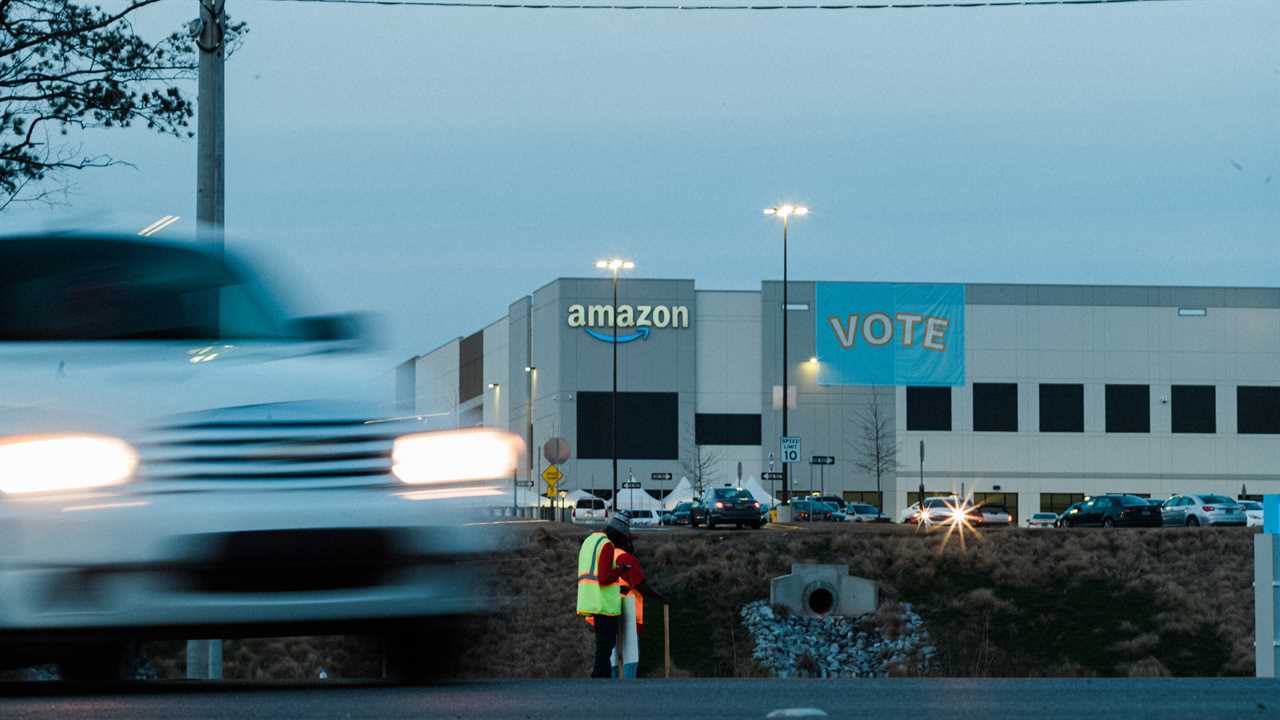
The counting of ballots in the closely watched unionization drive at the Amazon warehouse in Bessemer, Ala., is set to resume Friday at 8:30 a.m. Central time.
With about half the ballots counted late Thursday, votes against unionization had an advantage of more than 2-to-1 over those in favor, according to a live broadcast of the counting that was tallied by The New York Times. When the counting paused, there were 1,100 votes against unionization and 463 in support.
There were 3,215 ballots cast, according to the Retail, Wholesale and Department Store Union, from 55 percent of the 5,805 eligible voters at the warehouse. The union must get support from more than half of the votes cast to prevail.
The ballots were being counted in random order in the National Labor Relations Board’s office in Birmingham, Ala., and the process was broadcast via Zoom to more than 200 journalists, lawyers and other observers.
The voting was conducted by mail from early February until the end of last month. A handful of workers from the labor board called out the results of each vote “Yes” for a union or “No” for nearly four hours on Thursday.
Amazon and the union had spent more than a week in closed sessions, reviewing the eligibility of each ballot cast with the labor board, the federal agency that conducts union elections. The union said several hundred ballots had been contested, largely by Amazon, and those ballots were set aside to be adjudicated and counted only if they were vital to determining an outcome. If Amazon’s large margin holds steady throughout the count, the contested ballots are likely to be moot.
The incomplete tally put Amazon on the cusp of defeating the most serious organized-labor threat in the company’s history. Running a prominent campaign since the fall, the Retail, Wholesale and Department Store Union aimed to establish the first union at an Amazon warehouse in the United States. The result will have major implications not only for Amazon but also for organized labor and its allies.
Labor organizers have tapped into dissatisfaction with working conditions in the warehouse, saying Amazon’s pursuit of efficiency and profits makes the conditions harsh for workers. The company counters that its starting wage of $15 an hour exceeds what other employers in the area pay, and it has urged workers to vote against unionizing.
Amazon has always fought against unionizing by its workers. But the vote in Alabama comes at a perilous moment for the company. Lawmakers and regulators — not competitors — are some of its greatest threats, and it has spent significant time and money trying to keep the government away from its business.
The union drive has had the retailer doing a political balancing act: staying on the good side of Washington’s Democratic leaders while squashing an organizing effort that President Biden has signaled he supported.
Labor leaders and liberal Democrats have seized on the union drive, saying it shows how Amazon is not as friendly to workers as the company says it is. Some of the company’s critics are also using its resistance to the union push to argue that Amazon should not be trusted on other issues, like climate change and the federal minimum wage.
Sophia June contributed to this report.






